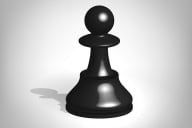You have /5 articles left.
Sign up for a free account or log in.
Many techniques have been used over the years to critique the influence of U.S. News and World Report's rankings. On Monday, a leading sociology journal published an article about how the ideas of Michel Foucault about discipline, surveillance and punishment (some of it self-inflicted) provide insights into why rankings encourage educationally questionable behavior by academic leaders.
"Rankings change perceptions through both coercive and seductive means," write Michael Sauder, an assistant professor of sociology at the University of Iowa, and Wendy Espeland, an associate professor of sociology at Northwestern University, in "The Discipline of Rankings: Tight Coupling and Organizational Change," just out in the American Sociological Review.
The Foucault work Discipline & Punish: The Birth of the Prison provides the sociological framework for the analysis. The book explores the power of scrutiny and surveillance to pressure people who might not otherwise conform to do so and to seek ways to make the system work to their advantage. Law schools are an ideal subset of higher education to use for applying these theories to college rankings, the authors write, because the leaders of legal education spoke out against rankings when they started and the law school world is relatively small, making it possible for U.S. News or others to rank all players.
The paper mixes the theory of Foucault with information gathered by the authors in interviews with law school deans and other administrators at 75 law schools, discussions with dozens of prospective law students, and analysis of 15 years of law school admissions data.
The interviews with law deans are consistent with the themes of other critics of U.S. News -- namely that the rankings force educators to focus on the wrong things. But because some deans who don't speak in public about the rankings were interviewed with anonymity, the rankings' impact on their work becomes clear in the study. A key part of Foucault's theory is that constant surveillance by some powerful force is a key part of gaining control, and the paper argues that U.S. News is such a power in the law school world. "Obsessed may be an overstatement, but it's not much of an overstatement.... None of us like them but all of us are obsessed," says one new dean.
In language suggesting a lack of control, the dean goes on to describe changing from a faculty member "who would say that we should disregard the rankings" to a dean who feels "that I don't have any choice but to think in terms of rankings."
When money is available, a dean is quoted as saying, good ideas are rejected in favor of spending categories that U.S. News rewards. "Maybe I should be putting the money I’d pay a faculty member into something else. But I’m thinking, “Oh man, if I can get that student–teacher ratio from 14.6 to 13.6 that will look very, very good in the rankings," says a dean.
In particular, the deans describe themselves as being unable to reject the U.S. News norms by, for example, moving away from admissions systems that emphasize standardized tests over creativity or individualism. "I think the rankings push you to give less weight to an applicant who has done something really interesting if they don’t have good LSAT numbers. So that might make for a less interesting class.... There is pressure to take people who’ve got good numbers and give less weight to other factors.... Certainly it has an impact on racial diversity because of all the well-known information about how blacks tend to do not as well on standardized tests and that [effect] is not good."
The mix of fear and anger at the rankings combines in some emotional excerpts from the interviews. "I have to be frank. I hate to say this but when the USN comes out, it reminds me of when I used to live in an apartment that had roaches. I developed this protective instinct, which is that I would close my eyes before I turned on the light to give them time to run away so that I didn’t really have to see them," says one dean. "The last time the USN came out, I just closed my eyes and I looked in the fourth tier just to make sure that we weren’t there, because I live in dread fear that we will fall to the fourth tier on my watch."
Robert Morse, who directs the rankings at U.S. News, turned to his Morse Code blog to respond to the new study. He writes that it is "inevitable" that rankings prompt changes in policies, but he goes on to say that's not the purpose of the evaluations, nor does that detract from the purpose.
"[Th]e fact is that this effect couldn't be further from our intent," Morse writes. "The main purpose of the rankings is to provide prospective law school students with much-needed -- and clearly desired -- comparative information to help them make decisions on where to apply and enroll. In today's legal job market a student's choice of law school plays a considerable role in getting that all-important first legal job. That job is particularly important since some new law school graduates have accumulated over $150,000 in debt just to get their J.D. degree and many need to start paying off their student loans."
Asked if the rankings have ever been subjected to a Foucault-based analysis, Morse said: "No, but as we know, there is the first time for everything."








